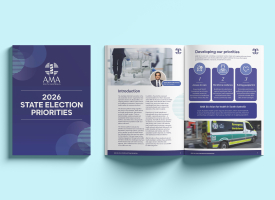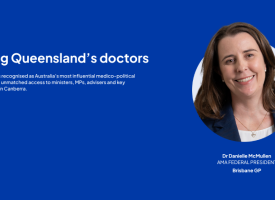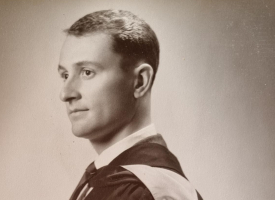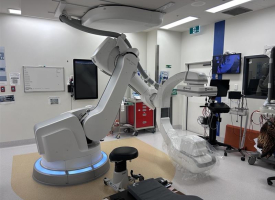Transcript - AMA Vice President Dr Chris Moy on major reforms to Primary Health Care outlined in government's draft 10-year plan
Transcript: AMA Vice President, Dr Chris Moy, Studio 10, Channel 10, Thursday, 14 October 2021
Subject: Draft Primary Health Care 10-year Plan
HOST: Now, a check-up at the local GP could soon be a very different experience.
SARAH HARRIS:Telehealth consultations will become the norm, with doctors using wearable monitors, instant blood tests and genetic screening to monitor our health. Vice President of the AMA, Dr Chris Moy, is on the government steering committee for this radical healthcare shake-up, and he joins us now from Adelaide. Doctor, it's always great to see you. What has prompted these proposed changes?
CHRIS MOY: Look, Australia has got a really great health system, even in world terms, but it's based on a thing called fee-for-service, which is essentially you go see your doctor for 15 minutes and the Medicare rebate helps you pay for the consultation. Now, that's kind of great for things like when you've got a broken finger and you go see the doctor and you've got a single problem. But I think what's becoming more obvious is that it's less helpful when you've got, say, an elderly person with lots of illnesses who is stuck at home and is kind of forced to go see the doctor in that sort of situation; actually turn up to the appointment when they're stuck at home and they got mobility problems. It's also less of a use for, you know, young people who have these sort of things, who are wondering, you know, they're doing teleconferences with their work and wondering why they have to come in all the time just for things when they don't have to.
So the idea is to sort of change the balance, get a bit of the past in the future, which is firstly to base a thing called voluntary patient registration. So, essentially what you do is you sign-up with a doctor who you trust. In that sort of trust, there's this ongoing relationship, but that unlocks sort of the ability to do things like telehealth, and also sort of access to improve things, like access to other nurses or physios and things like that who maybe don't even have to come in sometimes because the way that the health system was funded is not necessarily just about coming in; it's about trying to suit the way that health is provided to you in the way that's actually most convenient to you.
TRISTAN MACMANUS: For a lot of people, I guess their instant reaction will be their privacy. Their privacy will be a concern when wearing wearable monitors, but surely the data will be very safe.
CHRIS MOY: It will be a choice for people. I mean, it's not something that they have to do. And I think the thing is, is that people have to decide whether the convenience of, for example, having access to do telehealth, to have things that they can wear to monitor their blood pressure or the oxygen level, which is really relevant to COVID at the moment, that can be fed back to the doctor, is more convenient than having to turn up at the doctor, and maybe, for example, at the moment, catching COVID.
So, I mean, people have to make a decision. And it's not something that'll be forced on people. I think this is something that will evolve over time. It's part of an evolution of general practice, not something that will replace, necessarily, what's happening now, but it will be added onto and change the way things happen, which hopefully will benefit both patients and their doctors.
SARAH HARRIS: Alright. Dr Chris Moy from the AMA, it's always a great pleasure to speak with you. Thanks so much for joining us today.



